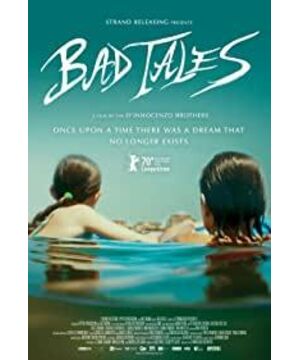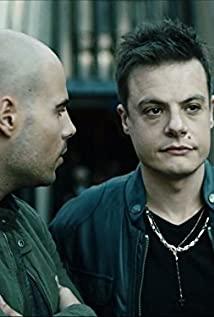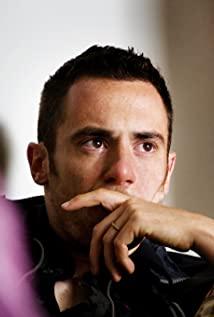I watched the film casually, and I saw a good film, or what I think is a good film. Although it is really a film that was randomly clicked from a video website (after checking it turned out to be the best plot of the Berlin Film Festival), it is exquisite The content, which is full of humanity, is really interesting, especially from the perspective of children, showing the story of a "sick" community in the suburbs of Rome. Some darkness and some depression.
-1. Structure-
First of all, we need to clarify the structure of the movie, which is probably the main story + a diary shell. The main story can be an independent true story, but the movie complicates it more and puts it into a fictional scene. The voice-over at the beginning said, this is the diary of a little girl named Alesia, which is the little girl heroine of the main line, but I still think that the main character of the main line is the little boy, and Quanqi regards the little boy Dennis as the male lead because it is really a description. There are too many stories about Dennis, with sister, teacher, father, pregnant woman, and girlfriend, etc. On the contrary, the heroine Alesia did not describe too much. Perhaps it is precisely because this is Alesia’s diary. Therefore, it is difficult to modify it based on the original content, and can only continue to write the plot of other people's brains.
So, when you see this, you will understand. To put it bluntly, this is a made-up story. It is a story expanded through the diary of a little girl named Alesia. A character expands the entire community of characters, so you say this Is it based on reality, yes, but this is again a completely fictional story, and in the plot, the suicide news of a pair of men and women played at the beginning and end of the film is actually for the pregnant woman of the protagonist's milk Oreo. It is a reminder to the audience: the story is purely fictitious.
Besides the main line, basically, the plot does not have a visible clue, most of which are sporadic fragmented footage, roughly in the form of a diary, introducing what happened to various families in the community in a summer. But in fact, after reading it, you will find that some hidden clues have been developing: one is that the distance between parents and children in the community is getting farther and farther, and the other is that the fat teachers in the school have always been miserable.
-2. Broken parents-
Speaking of the relationship between parents and children, this foreign film has the feeling of Chinese parents, that performance is the highest, only paying attention to material needs and never paying attention to the children's heart, so that in the end, the children’s "bombs" at home are all done. The parents didn't know it. Obviously, the parents in the movie are all unqualified parents:
The father of a male and female leader would be so angry that his daughter would cry, would be furious because his son was stuck in his throat, would have a small belly to scratch the swimming pool he bought (shared by public), and would have questioned himself and his wife just because of his son. The relationship hit her son, and even after she got up early and found that her son and daughter had committed suicide, they went back to bed cowardly and continued to sleep...
Obviously he is not a man at all, he can't handle things, and has a lot of bad temper. This is simply the epitome of a type of parents in reality. In the movie, they eventually lose their children. In reality, when are such parents Can you realize your problem?
Regarding pregnant women, as a mother, she has also collapsed, seemingly hopeful for the future, but in fact she has long been discouraged, her indifference to her daughter (putting in the car to cry) and frequent emotional out-of-control are all sick. The atmosphere reflects the pathological reactions of normal people.
I have to mention the father of the boy with measles. Obviously, this is a mockery of the fathers with superior but abnormal family background. The father in the community who knows how to care for his son is the most abnormal father (with some brain problems). It was precisely because of his decision to move out of the community that the measles boy avoided the mass suicide.
-3. Precocious children-
The children appearing in the film are probably all at the age of elementary school, except for the diary owner Alesia who is relatively normal (implying that it was originally a normal diary and a normal community, but the film created a fictitious community). The children, Dennis, the wig girl, the measles boy, and Dennis’ little girlfriend, are all mature to horrible maturity. In the film, Dennis can communicate with pregnant women freely, feeling that it is not a boy but a "man" during conversation.
In the absence of parental care and communication, children's thoughts are arbitrarily swayed and manipulated by some thoughts, and none of this can be detected. Adults don’t have the atmosphere of silk milligram system: pregnant women give Dennis all kinds of sexual hints, Dennis’s father and the father of the wig girl say some foul language to other people’s wives together. These eventually led to the precocious puberty of the children, so Dennis and his little girlfriend wanted to try to love...
The children in the play do not look like children at all, so that in the end they actually made the bomb when they said that they made a bomb, but even so, they were still immature and looked like a child in a room with a bomb. The cartoon, this kind of plot setting, clearly tells people that the problems are not the children's own problems, but the influence exerted on them by the whole environment.
Let’s not talk about Alesia, the owner of the diary. Looking at the children in the town as a whole, in fact, only his sister Alesia has normal emotions (the dull measles boy may also be one). Alesia will cry whenever he sees his father angry, and is also there before he and Dennis prepare to commit suicide. Crying, this normal reaction to the collapse of the community in the movie seems a bit out of place. This also tells us from the side that perhaps the part of the little girl is true, and the rest is fictional, which means that the little girl’s cry is written Cry in the diary, but why cry, belongs to the plot of a fictional "bad story".
-4. Anti-social teacher-
How much bad influence a person can cause, the film gives a cruel answer that may happen in reality. As a teacher, it is not so simple to pass anti-social sentiments to elementary school students who have not established the Three Views, so that only one lesson can destroy a community. The children made bombs were taught by the male teacher, and the last suicide by drinking pesticides was also taught by the male teacher. But did the male teacher instigate the children to commit suicide? The movie did not say that, I think it did not.
The idea of Dennis wanting to "blow up" the community is more of his own. In other words, the children have a kind of "hate" towards their parents and a kind of "don't care" towards their own lives. This is what Dennis' father taught. This is what was taught to him by pregnant women’s attitude towards children. Under this environment, the children may have long been weary of the world. The male teacher just pushed the boat along the river, provided them with plans, and vented his personal anger by the way (he hates children himself, But I had to teach, but because these children lost their jobs).
-5. Enlightenment-
So what does this movie want to express? It is by no means a "bad story". I think there are several meanings:
The first is the depressive living conditions of ordinary people in ordinary Italian communities;
The second is the abnormal state of communication between parents and children;
The third is the dereliction of duty of the school's supervision of teaching staff/content;
The fourth is the inner world of children in a depressive environment.
At this point, the enlightenment of the film is also very clear, pay more attention to the inner world of ordinary people, as parents, pay more attention to children, and as schools, pay more attention to the health of teachers.
---
On the whole, the film and its calm narrative method, coupled with its painful lessons, warn the audience to awaken people’s attention to family and children, and let people pay attention to this "possible" repressive social state. Don’t " I don’t see the coffin, I shed tears", just as the Dennis family neatly "lazily" watched the news of a man and a woman committing suicide. They did not realize that they were the victims of the whole disaster.
View more about Bad Tales reviews











